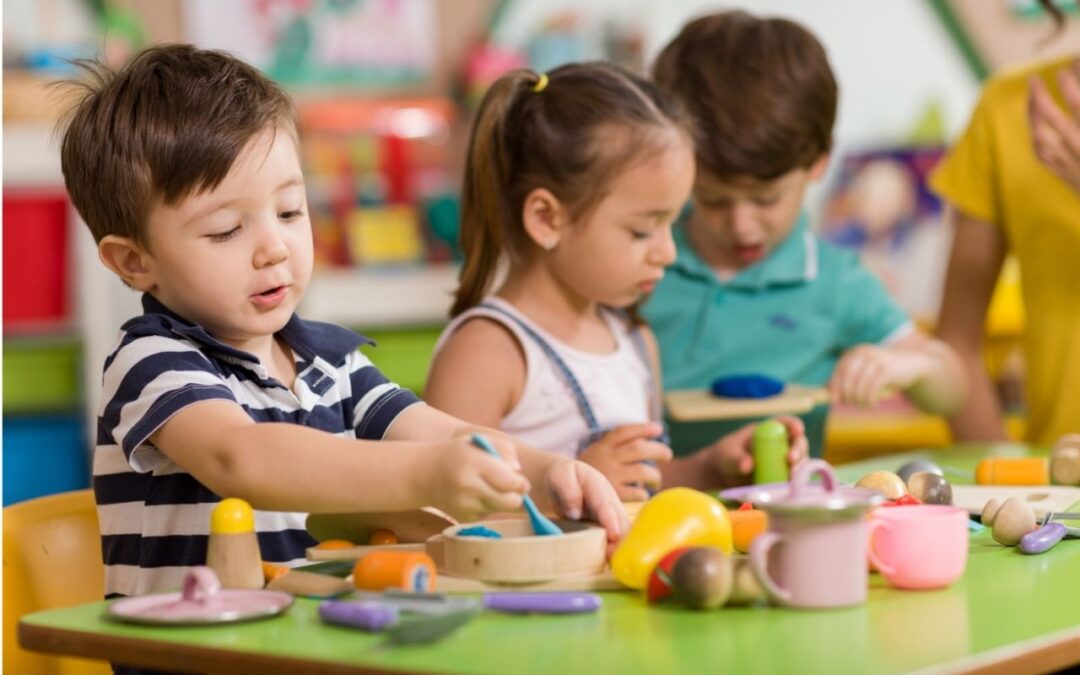Early education can set your child up for success later in life. Enrolling your child in a preschool can be a great way to jump-start your child’s education.
Many parents assume that their child will be ready to enter preschool when they hit the age of eligibility, but this isn’t true. Children develop at different rates, both physically and emotionally. Sending your child to preschool before he or she is ready could end in disaster.
You should use more than just age to help you determine when your child is mature enough to attend preschool classes. Here are some basic guidelines.
1. Expressive
To be ready for preschool, kids need to be able to express themselves in a way that an unfamiliar adult can understand.
That doesn’t mean your child needs to be speaking in full sentences. But kids do need to have an appropriate way of getting their feelings and needs across. That can be with words, with gestures or sign language, or with the help of technology.
Kids who are expressive can understand what other people say. They might not yet follow directions with multiple steps, but they understand basic words and directions like “sit down” and “follow me.”
Preschoolers are also expected to have a basic understanding that other kids have feelings and needs.
2. Emotionally ready
Emotionally, there are a few things to look for when considering whether your child is ready for preschool. The first is the ability to say goodbye to a parent or caregiver without too much anxiety. It’s common to be a little nervous. But kids who cry the entire day might not be ready to go to a full preschool program.
That said, many kids cry when you say goodbye on the first day or even throughout the first week.
Kids who are emotionally ready are more eager to go to school and want to make friends. They might not have the skills to make friends yet, but wanting to make them is a good start.
3. Physical Maturity
Preschool can be a fun place for young children to spend time, but participating in preschool classes can also require some physical stamina.
Your child should be able to make it through the day without a long nap before being enrolled in preschool. Children that have not mastered the art of potty training might not be physically ready for preschool either. Your child should also be able to complete basic tasks like washing his or her hands after finger painting or eating lunch without assistance before attending preschool.
Reaching an appropriate level of physical maturity will ensure that your child is prepared to deal with the demands of being in a classroom setting.
4. Independence
In order to fully participate in a preschool program, your child will need to be independent enough to feel comfortable spending time away from you. Children with separation anxiety can experience emotional trauma if they are enrolled in a preschool program too soon.
Gauge your child’s level of independence by scheduling time away from your child. Send him or her to a grandparent’s house for the weekend or have an aunt or uncle take your child out for the day.
Easing your child into spending time without you can be a simple and effective way to prepare him or her for preschool. An independent child will learn more in a classroom setting and will not serve as a distraction for the teacher or other students.
5. Preschool Is Fun
Preschool gives your toddler the option to participate in a number of fun activities, such as story time, playground play, crafts, dress-up, and games. Your child will receive regular mental stimulation and have the opportunity to stay physically active throughout the day. The knowledge that their toddler enjoys their day is comforting for many parents who are unsure about sending them to preschool.
6. Curiosity
Children who are ready to attend preschool exhibit a healthy curiosity and desire to learn about the world around them. Without this desire to learn, your child may find it difficult to remain engaged in classroom activities.
Preschool is also a great place for children to begin learning important social skills. Younger children are often not ready to begin interacting with others on a regular basis. Wait until your child willingly makes new friends on the playground or joins in group activities without being asked before sending him or her to preschool where they will have to interact throughout the day.
A preschool classroom can provide the stimulation that your child is lacking at home. Arts and crafts projects, story time, and music experiences allow your child the chance to express his or her creativity. If you find that your child is often bored or getting into things around the house, these could be signs that additional stimulation is needed to help your child continue his or her social and intellectual development.
Preschool plays an important role in helping your child gain valuable reading and writing skills in preparation for kindergarten. A preschool classroom can also be a great place for your child to develop the confidence and autonomy needed to succeed in an educational setting. Despite these benefits, sending your child to preschool too soon could have disastrous consequences.
At Rising Stride Child Care Centers, we pride ourselves on providing children with a quality preschool and fun learning. Contact us today for help determining if your child is ready for enrollment in our preschool.

